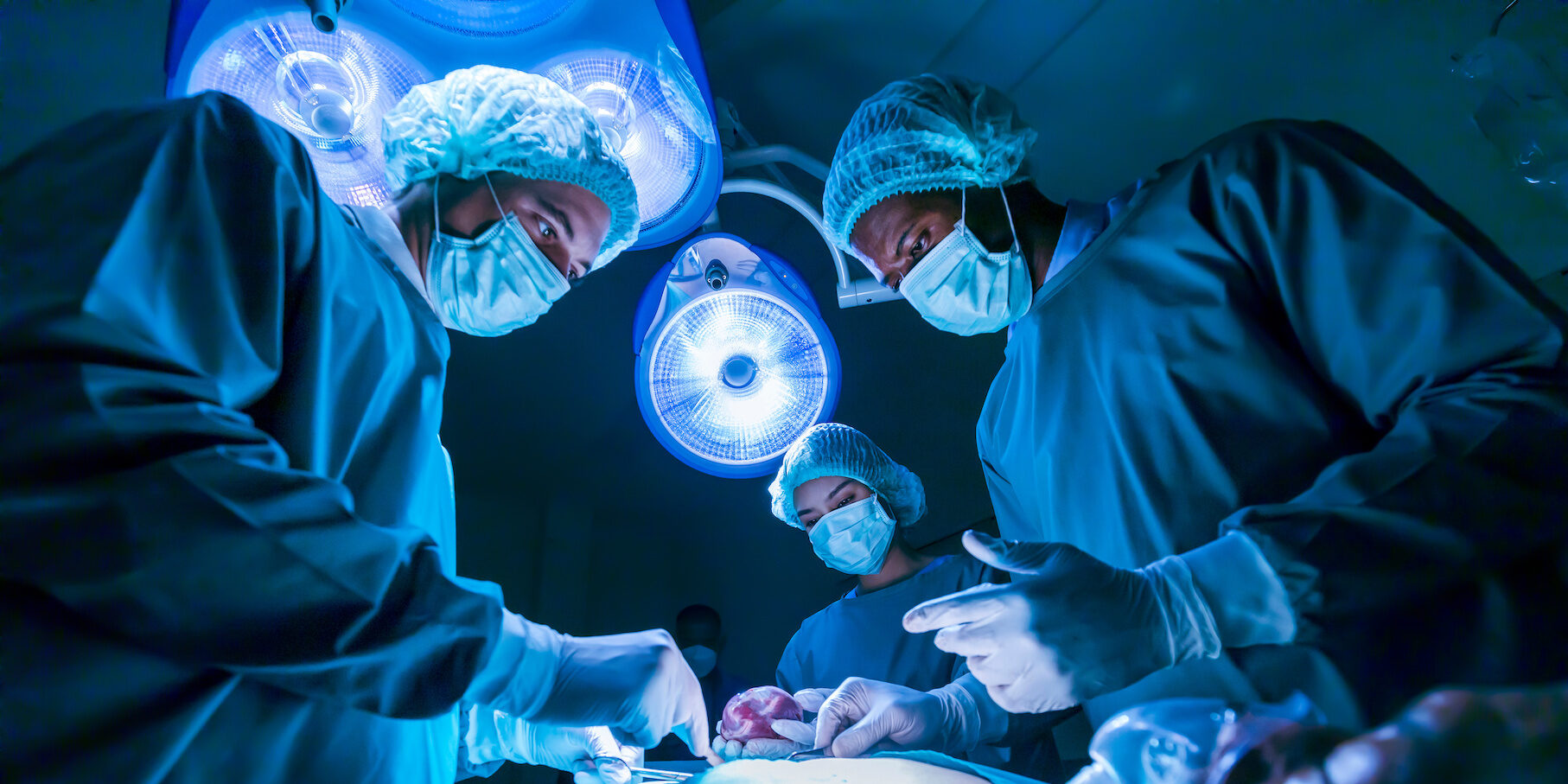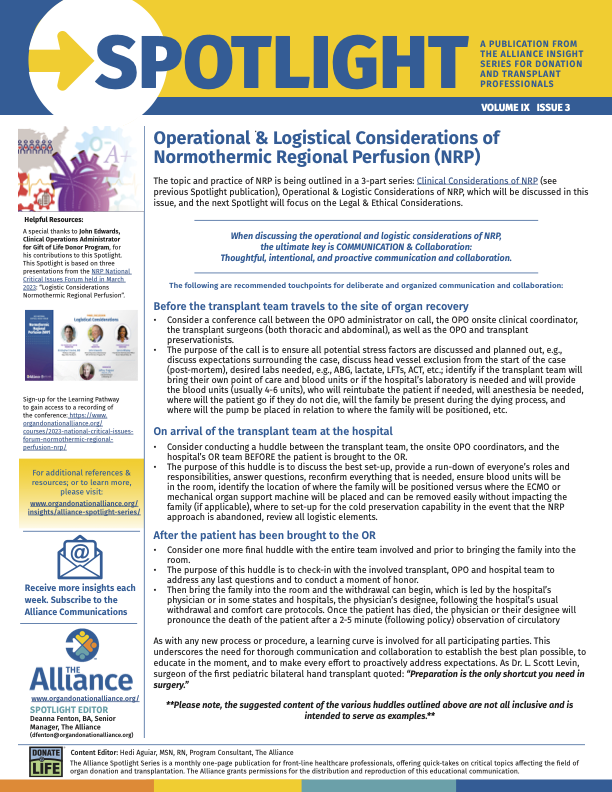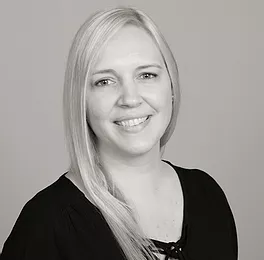The topic and practice of NRP is being outlined in a 3-part series: Clinical Considerations of NRP (see previous Spotlight publication), Operational & Logistic Considerations of NRP, which will be discussed in this issue, and the next Spotlight will focus on the Legal & Ethical Considerations.

The following are recommended touchpoints for deliberate and organized communication and collaboration:
Before the transplant team travels to the site of organ recovery
- Consider a conference call between the OPO administrator on call, the OPO onsite clinical coordinator, the transplant surgeons (both thoracic and abdominal), as well as the OPO and transplant preservationists.
- The purpose of the call is to ensure all potential stress factors are discussed and planned out, e.g., discuss expectations surrounding the case, discuss head vessel exclusion from the start of the case (post-mortem), desired labs needed, e.g., ABG, lactate, LFTs, ACT, etc.; identify if the transplant team will bring their own point of care and blood units or if the hospital’s laboratory is needed and will provide the blood units (usually 4-6 units), who will reintubate the patient if needed, will anesthesia be needed, where will the patient go if they do not die, will the family be present during the dying process, and where will the pump be placed in relation to where the family will be positioned, etc.
On arrival of the transplant team at the hospital
- Consider conducting a huddle between the transplant team, the onsite OPO coordinators, and the hospital’s OR team BEFORE the patient is brought to the OR.
- The purpose of this huddle is to discuss the best set-up, provide a run-down of everyone’s roles and responsibilities, answer questions, reconfirm everything that is needed, ensure blood units will be in the room, identify the location of where the family will be positioned versus where the ECMO or mechanical organ support machine will be placed and can be removed easily without impacting the family (if applicable), where to set-up for the cold preservation capability in the event that the NRP approach is abandoned, review all logistic elements.
After the patient has been brought to the OR
- Consider one more final huddle with the entire team involved and prior to bringing the family into the room.
- The purpose of this huddle is to check-in with the involved transplant, OPO and hospital team to address any last questions and to conduct a moment of honor.
- Then bring the family into the room and the withdrawal can begin, which is led by the hospital’s physician or in some states and hospitals, the physician’s designee, following the hospital’s usual withdrawal and comfort care protocols. Once the patient has died, the physician or their designee will pronounce the death of the patient after a 2-5 minute (following policy) observation of circulatory cessation.
As with any new process or procedure, a learning curve is involved for all participating parties. This underscores the need for thorough communication and collaboration to establish the best plan possible, to educate in the moment, and to make every effort to proactively address expectations. As Dr. L. Scott Levin, surgeon of the first pediatric bilateral hand transplant quoted: “Preparation is the only shortcut you need in surgery.”
**Please note, the suggested content of the various huddles outlined above are not all inclusive and is intended to serve as examples.**







